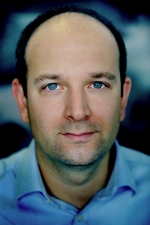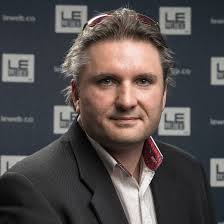 Happy Wednesday, everyone!
Happy Wednesday, everyone!
—–
Top News in the A.M.
The White House is reportedly reviewing four ways to revamp NSA phone surveillance.
—–
The Deal on Being a Micro VC, with Jeff Clavier
Jeff Clavier once worked for the venture investment arm of Reuters. But he decided he might do better on his own by sprinkling tiny amounts of money across what appeared to be a new crop of capital-efficient Internet companies. It was 2004. Sitting with Clavier at Founders Den, a popular clubhouse for San Francisco entrepreneurs, Clavier recalls that at Reuters, he’d made “some, but not a lot of money,” making the $250,000 that he and his wife set aside to stake his fund, SoftTech VC, “a nontrivial risk.”
Fast forward, and that gamble appears to have paid off. Clavier turned his first $1 million fund into a second $15 million fund in 2007, then a $55 million third fund in early 2012. Clavier isn’t speaking about fundraising, but judging from the firm’s most recent SEC filing, an $85 million fourth fund is around the corner, too.
“It was a crazy thing to do, but it worked,” shrugs Clavier, an unrepentant Frenchman. To date, roughly 20 percent of SoftTech’s 144 portfolio companies have been acquired, including the financial service Mint (Intuit), the online shopping services Kaboodle (Hearst), the content company Bleacher Report (Time Warner), and the game maker Tapulous (Disney).
Given how many people seemingly want to be known as “micro VCs” these days, this reporter asked Clavier to elaborate on what the job really entails. (Tomorrow, I’ll feature more on Clavier’s portfolio and his thoughts the current market.)
What’s the biggest misconception about what you do?
I think people have to understand that it’s harder that it looks, and that while people might give you [a small bit of capital first fund], you really need to be successful to be allowed to raise a next fund.
Everyone thinks: I was a successful angel; I can be good at managing a micro fund. But the answer is no. Being an angel means having a good nose, being at the right place at the right time, and putting in small amounts of money after you’ve made quite a bit of money yourself, so that you’re not really risking anything. But managing other people’s money is a massive responsibility. Too often I get calls [from budding micro VCs] like, ‘Dude, I have this report to issue,’ or ‘Should I audit my fund?’ And those are panicked calls.
Have we reached a tipping point? Are there too many seed-stage funds?
There are so many. And I’m more than welcoming to the industry, but you wonder what people are thinking when they want to start yet another micro VC fund. The market doesn’t need it. [As it stands], there will be a contraction at some point.
What are some mistakes from which you’ve learned?
To be honest, the biggest mistakes we’ve made are the companies we’ve passed on: LinkedIn, Twilio, Airbnb, Square Pinterest. All of those were in our hands, and we said no.
Wow.
You make mistakes. It’s your job to see everything, and hopefully make enough right decisions enough times that you make money for your investors.
The challenge for very early stage investors is that when we see things, they’re pretty ugly. They don’t work yet. Sometimes, we just fall in love with the entrepreneur and we nail it. But take Airbnb. I heard of it when it was AirBed & Breakfast and they were selling a service that helped you get an air bed at someone’s place when you went to [an out-of-town] conference. Hmm [said mockingly], let me think. [Laughs.] And it was a total screw-up.
Any other missteps that might be instructive?
One of the mistakes I made, I think, was that I stayed on my own for too long. I don’t think I was clear on the real opportunity to build a firm around this strategy until around late 2008, 2009. Then I brought on my awesome partner Charles [Hudson] in 2010. [Clavier soon after added principal Stephanie Palmeri.]
I wouldn’t do the solo GP thing again. But my own evolution has been defined by the fact that I started 10 years ago, when the only mentor I had at the time, because he’d gotten going slightly earlier, was Josh Kopelman of First Round [Capital].
What else should those who want to follow your path consider doing?
First, I’d say open a new bank account, define a budget, say $250,000, and give yourself 25 shots of $10,000 to invest over two or three years. Take your time, but forget about that money because the most likely outcome is that you lose everything, and if it comes back, it will take a long time; most exits take seven to nine years.
Beyond that, try and figure out whether you’ll be good at being a coach: supporting, helping, kicking, yelling a bit if needed, being tough, but not driving, because entrepreneurs don’t work for you and often don’t listen to you.
You also have to be really good at context switching, depending on the size of your portfolio, switching every half hour to an hour from one company to another to another, always on the lookout for portfolio value add [like new hires]. You have to be happy to work 10 to 12 hour days, then do email and still go to bed feeling like you’ve accomplished nothing because it’s so varied that having a sense of achievement and success is nearly impossible.
You’ve noted that mistakes are inevitable. But are there any “tells” when it comes to good or bad founders? Any unifying threads?
No, you can never predict. Sometimes we look back at teams we backed and we say, what the f__k were we thinking? It was just so obvious those guys would fail, but of course, when we invested, we didn’t feel that.
It is really good to know what you’re good at and what you’re not good at. We made a couple of investments in next-generation e-commerce companies that literally got obliterated and we lost close to $1 million, twice, and that sucks. We actually stay away from that category now, the subscription thing, we’re done with it. It isn’t that there aren’t good types of companies; we’re just not good at sniffing those.
Anything else people should expect to experience?
For anyone getting going in this industry, they have to be clear that bad news comes first. So you invest in a company, and if it’s a really crappy deal, within six months to a year, you’ll have to tell your investors you lost their money. And unless there’s something exceptional happening in the portfolio where you have a very early win, you will have bad news after bad news after bad news until you get some good news. You have to have the guts to say, “This is why we failed and this is where we screwed up.”

New Fundings
All in One Medical, an 11-year-old, Wolverhampton, U.K.-based maker of disposable curtains and blinds that aim to prevent the spread of harmful pathogens in medical settings, has raised $5 million in funding fromBeringea Private Equity. The company used a portion of the proceeds to acquire Fantex UK Limited, a maker of biodegradable biocides.
Casper, a year-old, New York-based, still-stealth startup that says it’s developing a “vertically integrated” approach to the mattress industry, has raised $1.6 million in seed funding led by Lerer Ventures, with participation from Norwest Venture Partners, Crosslink Partners, Vaizra Investments, and Correlation Ventures.
Cheetah Medical, a 13-year-old, Newton Center, Ma.-based company that’s focused on a noninvasive way to monitor the cardiovascular system of patients, has raised $9 million in funding led by Fletcher Spaght Ventures, with participation from Springfield Investment Management,MVM Life Science Partners, Robert Bosch Venture Capital andAscension Health Ventures. The company raised an earlier, $20 million, round from investors in 2010, shows Crunchbase.
Clarity Software Solutions, a 6.5-year-old, Madison, Cn.-based document management company for the health insurance industry, has raised an undisclosed amount of funding from North Bridge Growth Equity.
CounterTack, a 6.5-year-old, Waltham, Ma.-based cyber security company, has closed its Series B round with $15 million. Its investors include Goldman Sachs, Fairhaven Capital and Siemens Venture Capital.
CyberSense, a five-month-old, Menlo Park, Ca.-based cyber security company, has raised $5 million in Series A funding from BRM Group andOpus Capital.
D.light, a 6.5-year-old, San Francisco-based solar lighting company, has raised $11 million in Series C funding. The investors included DFJ,Omidyar Network, Nexus India Capital, Gray Ghost Ventures, Acumen Fund and Garage Technology Ventures.
Hickies, a three-year-old, Brooklyn-based developer of a footwear elastic lacing system made of polymers that adapt to shoe size and contract with the foot’s movement, has raised $4.2 million in funding led by the venture arm of a global (unnamed) footwear brand and the Collaborative Fund.
If You Can, a two-year-old, San Mateo, Ca.-based startup that uses gameplay to teach children social and emotional learning skills, has raised $6.5 million in Series A funding led by Greylock Partners. Almaz Capitalalso participated in the round, alongside other, unnamed investors. The company, founded by serial entrepreneur Trip Hawkins, had previously raised $2.8 million from founders, angels and seed funds, includingAndreessen Horowitz, Founders Fund, and Maveron.
Kahuna, a two-year-old, Mountain, View, Ca.-based mobile marketing platform, has raised $11 million in funding from Sequoia Capital, with Sequoia partner (and AdMob founder) Omar Hamoui, joining its board of directors. Kahuna has now raised roughly $13 million altogether, including from Promus Ventures, SoftTech VC, Costanoa Venture Capital.
Opternative, a year-old, Chicago-based company that operates an online eye exam, has raised $1 million in seed financing led by Tribeca Venture Partners and Chicago Ventures, which were joined by individual investors.
Piazza, a four-year-old, Palo Alto, Ca.-based online platform that invites students to post questions anonymously and their classmates and professors collectively answer, has raised $8 million in Series B funding led by Khosla Ventures, which was joined by existing investor, Bessemer Ventures. The funding actually closed last year, but was not announced publicly, says TechCrunch, which notes that the company’s total funding to date is now $15.5 million.
Spree Commerce, a 2.5-year-old, Bethesda, Md.-based company whose open source software enables retailers to create customized storefronts, has raised $5 million in Series A funding led by Thrive Capital. Vegas Tech Fund and Red Swan also participated in the round, alongside previous backers True Ventures and AOL Ventures.
Thesan Pharmaceuticals, a three-year-old, Carlsbad, Ca.-based company focused on creating treatments for dermatological disorders like acne and atopic dermatitis, has raised $49 million in Series B financing led by earlier investor Novo Ventures. SV Life Sciences, Lundbeckfond Ventures, and Novartis Venture Fund also joined in the round.
The Trade Desk, a 4.5-year-old, Ventura, Ca.-based digital ad firm that runs a demand-side platform, has raised $20 million in Series B funding led by Hermes Growth Partners. Earlier investor IA Ventures also participated in the round.
Tradeshift, a 3.5-year-old, San Francisco, Ca.-based business-to-business platform, just raised $75 million in Series C funding from Scentan Ventures. The company has raised roughly $115 million to date, including from Notion Capital, Kite Ventures and ru-Net Holdings.
Workboard, a year-old, Palo Alto, Ca.-based maker of status reporting software for enterprise managers, has raised $2.75 million led by Granite Ventures and Opus Capital, with participation from Crosslink Capital and Shea Ventures. The company’s first product is still in private beta.
—–
New Funds
Ignite100, a rare U.K. accelerator to run outside of London, has raised $1.16 million from mostly U.K.-based angel investors to fund three new programs from June 2014 to April 2015. More here.
—–
Exits
SocialVest, a 4.5-year-old, Atlanta-based online retail marketplace that allows customers to make brand name purchases and direct a portion of the payments to non-profit organizations, has been acquired by a philanthropy-focused online shopping mall called PlanG Holdings. Terms of the deal aren’t being disclosed. SocialVest had raised $1.85 million in funding, including from Bluff Point Associates.
—–
People
Marc Andreessen, whose firm has invested millions of dollars in Coinbaseand other, related startups, appeared on CNBC yesterday morning, where he compared the failings of the Bitcoin exchange Mt. Gox, to the failed brokerage firm MF Global, which filed for bankruptcy in 2011. ““This is like MF Global, not some huge breakdown of the underlying technology or other exchanges,” said Andreessen. “Bitcoin protocol is unchanged and other Bitcoin exchanges and companies are doing fine.” Dealbook has more on Andreessen’s appearance here.
Speaking of Andreessen Horowitz, firm cofounder Ben Horowitz announced yesterday that he’ll be donating all proceeds from his new book, The Hard Thing About Hard Things, to the American Jewish World Service, whose mission is fighting hunger, disease and poverty in developing countries. Horowitz says the money is intended to support its efforts to “help women fight for their basic rights throughout the world.” The book will be released March 4.
Zappos CEO Tony Hsieh recently decided on a particular tattoo to celebrate his 40th birthday. To show their allegiance to Hsieh, friends — they call themselves “Zapponians” — all gathered at the same Las Vegas tattoo parlor to receive the same, small circular tattoo. One could view the act as supportive; Gizmodo suggests the stunt is worrisome and that things have grown cult-like in Las Vegas, where Hsieh is famously self-funding the revitalization of several downtown blocks. (I wouldn’t go that far, but after visiting Downtown Project in late 2012, I had questions about Hsieh’s circle, too; I’d written about that here.)
Venture capitalist Fred Wilson called yesterday a “sad day” for the Bitcoin sector, though Wilson isn’t crying too hard over the apparent blow-up of theMt. Gox exchange, saying the fiasco has created an opportunity to buy the digital currency on the cheap (comparatively). “I always feel good buying when there is blood in the streets in any market,” wrote Wilson on his blog.
—–
Happenings
Coming up on Friday, you might want to catch the 2014 Columbia Business School Private Equity & Venture Capital Conference in New York, which runs from 8 a.m. to 6 p.m. local time. You can learn more here.
It’s a few months away, but while you’re planning your spring itinerary:Bitcoin 2014: Building the Digital Economy, a two-day conference centered on the digital currency, will be taking place in Amsterdam beginning May 15. Registration is now open.
—–
Data
As competition for top tech deals heats up among top investment banks,Goldman Sachs has turned up its private tech investing, participating in more than 60 deals since 2009. CB Insights takes a look at where Goldman has been applying most of its financial muscle.
—–
Job Listings
OpenView Venture Partners is looking for a research analyst in Boston. Apply here.
—-
Essential Reads
Inside the high-stakes battle to control how you talk to friends.
A U.S. district judge in San Francisco yesterday dismissed a lawsuit against games maker Zynga, its founder Mark Pincus, and the underwriters of the company’s IPO, Morgan Stanley and Goldman Sachs. The suit alleged fraudulent and misleading handling of Zynga’s public offering in December 2011.
Tech is taking over New York. The sector has reportedly become one of the fastest growing in New York City’s office market, with total leasing volume by tech companies growing by more than 2000 percent from 2008 to 2013. In January alone, tech outfits represented 21 percent of all leases, up from 10 percent in December, says the commercial real estate company Jones Lang LaSalle. Among the biggest leases signed in January: 144,000 square feet nabbed by Twitter on West 17th Street and 118,425 square feet secured by IBM at 51 Astor Place.
—–
Detours
Another reason not to like open-plan offices: they could be making people sick.
Tensions are rising in San Francisco, and it could lead to a make-or-break year for 49ers coach Jim Harbaugh.
Yesterday, we sent you to the subscription-only National Law Journal for a list of the top go-to law schools of 2014. That was sort of an accident (sorry). Unfortunately, we can’t give you access to the full list, but you can find the top 10 schools here.
—–
Retail Therapy
A small trailer with a vintage look and feel.
A T-shirt to get you attention. (As if you needed more!)
—–
To sign up for StrictlyVC, click here. To advertise, click here.
 For people with Andreessen Horowitz fatigue, things are about to get worse with the publication of co-founder Ben Horowitz’s new book, The Hard Thing About Hard Things.
For people with Andreessen Horowitz fatigue, things are about to get worse with the publication of co-founder Ben Horowitz’s new book, The Hard Thing About Hard Things.






